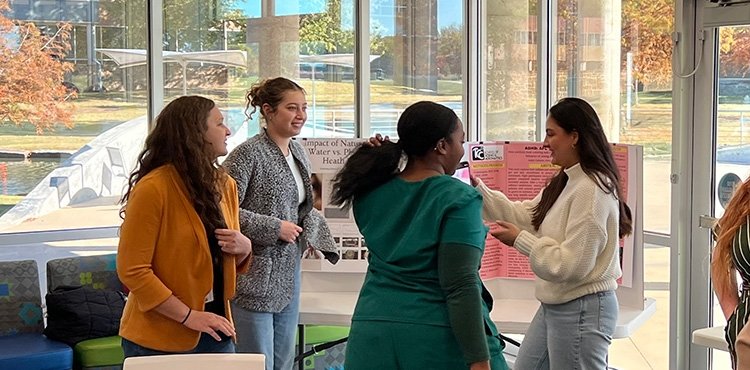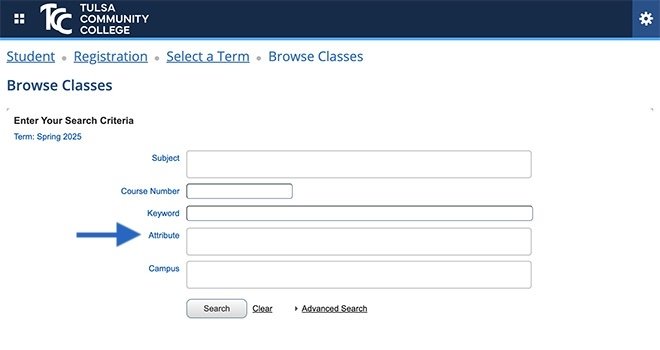Undergraduate Research
Discover hands-on research at TCC! Gain experience, work with mentors, and build skills for success in the Undergraduate Research experience.

Undergraduate research is a project or exploration that you lead while earning your first degree. The goal is to add new ideas or creative work to your field of study.
Add Research to your College Experience Participate in Research Events
Why Participate in Undergraduate Research?
- Get Actively Involved in Learning — Engage deeply with course concepts through hands-on projects and research that go beyond lectures and textbooks.
- Build Versatile Skills — Gain valuable experience working both independently and as part of a team—skills employers love.
- See the Bigger Picture — Understand how what you’re learning in class connects to real-world problems and solutions.
- Sharpen Your Mind — Strengthen your critical thinking, problem-solving, and analysis abilities.
- Boost Your Confidence — Learn to present your ideas clearly and confidently in front of others.
- Gain Connections and Opportunities — Open doors to mentorship, internships, and future career paths through hands-on research.
Get Started
Research Focused Courses
At TCC, we offer two-course attributes to help you identify classes that incorporate research as a key component of the curriculum.

Foundational Research
Course Attribute: Research <20%
Courses with this attribute include a research project that contributes a minor portion—less than 20%—to your overall grade. This is a great starting point for honing your research skills.
Depending on the course research might include:
- Annotated Bibliographies
- Literature Reviews
- Art Projects
- Data Collection & Analysis
Intensive Research
Course Attribute: Research >20%
These courses require a research project making up more than 20% of your total grade. This is a great way to take your research skills to the next level.
Depending on the course research might include:
- Research Paper
- Art Project
- Data Collection & Analysis
- Scholarly Work
Independent Research
Pursue a topic that fascinates you! At TCC, we can connect you with a faculty mentor to guide you through the research process. Turn your ideas into meaningful, impactful projects.
Questions?
Have questions about enrolling in research courses, need support for an independent project, or want to learn more about undergraduate research?
We’re here to help—just email us at undergradresearch@tulsacc.edu.
Conferences & Showcase Events
TCC's Undergraduate Research and Scholarly Activities team is dedicated to helping you explore your interests and transform your ideas into well-researched projects and presentations.
To participate in any of these events email undergradresearch@tulsacc.edu.
URSA (Undergraduate Research & Scholarly Activities) Showcase
This conference is an exciting event that celebrates creativity, learning, and collaboration. It includes a keynote speaker, panel discussions. You will have the chance to share research ideas or projects at any stage—from early concepts to finished work—and get constructive feedback from faculty and academic leaders. This event also offers a great opportunity to connect with others, exchange ideas, and network with professionals in the field.
Registration opens in early fall.
Stayonference
The StayOnference is TCC’s annual conference where faculty and staff come together to share ideas, insights, and expertise. They present on topics around teaching, learning, and research interests. You can also participate by displaying your research projects through poster presentations, which is great preparation if you plan to attend OK Research Day.
Registration opens in early spring.
OK Research Day
At this spring event undergraduates from across the state deliver poster presentations. It is held at a regional university. TCC provides transportation to all participants.
Registration opens in early spring.
Event Questions
If you have questions about any of our events you can email us at undergradresearch@tulsacc.edu.
